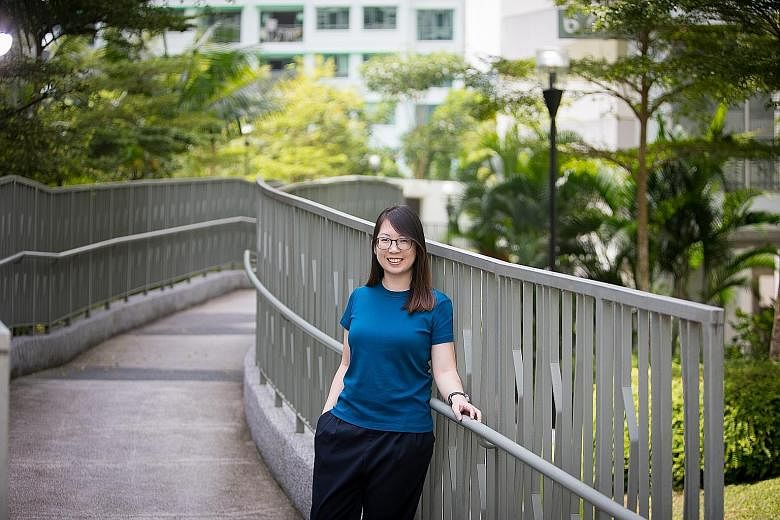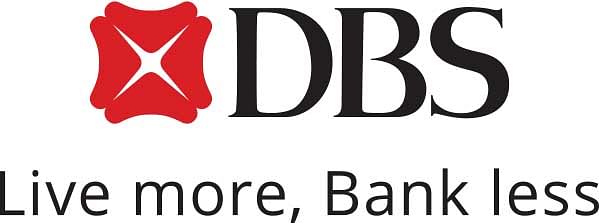Writing once saved Ms Nicole K.'s life. Now, she is using it to help others.
In 2011, struggling with major depression and generalised anxiety disorder, it was penning a suicide note that brought her back from the brink.
"Writing helped me de-escalate my emotions," says Ms K., now in her 30s, who has kept a journal since her childhood. Throughout her mental health journey, which began when she was diagnosed in 2006, journaling has helped her identify trends, themes and triggers.
Her brush with death led her to seek out a new psychiatrist, a fresh course of medication and regular therapy, which all helped put her on the course to recovery. For the first time in five years, she realised that her mind was clear.
"I thought it shouldn't have to take so long for people to get the help they need," says Ms K., who declined to reveal her surname.
In 2014, she started mental health publication The Tapestry Project SG, which offers encouragement to people with mental health conditions through first-person stories.
In February, it introduced a new section called #CopingCovid19 stories, in which contributors share their experiences. Stories cover topics such as parenting, financial stress and guilt about not feeling productive enough at home.
"With social distancing, it can get depressing as I am all on my own," writes Ms Gerlind Quek, 40, who has bipolar disorder and works in the funeral industry.
The #CopingCovid19 stories are among new online initiatives launched in response to the coronavirus pandemic.
Others, such as online workshops by mental health charity Clarity Singapore, offer a safe space for people to seek help and ask questions about mental health conditions.
The toll of Covid-19 goes beyond rising case numbers and deaths. Over the past few months, psychological effects such as social isolation, anxiety, boredom and stress have emerged as people have had to adapt rapidly to the changing circumstances. Here and abroad, the number of calls to mental health hotlines have spiked.
-
This is the third of a five-part series in collaboration with DBS to showcase people in Singapore who have come together to uplift the community in these trying times. Read more at str.sg/purpose
Mr Neo Eng Chuan, founder and principal psychologist of counselling and psychological private practice Caper Spring, adds that being confined at home can put a strain on distressed romantic or familial relationships as tension is compounded over time. People also have fewer options to help them cope, such as going to work, meeting friends or exercising, he says.
And for those with mental health issues, it was a "big blow" when psychological treatment was omitted from a list of essential services allowed to operate under the circuit breaker, says Ms K., who juggles freelance writing and running the non-profit online publication.
"Our mission has always been to let people know they are not alone, especially now when people are behind closed doors. I hope the stories will reassure people that it is okay to struggle during this time," she adds.
Meanwhile, staff at Clarity Singapore, which also runs youth platform The Yes Initiative, have also adapted swiftly over the past few months, taking existing programmes online and even launching new ones.
In April, midway through a free eight-week programme for youth with mental health conditions called Project Bloom, facilitators shifted the programme online to comply with circuit breaker measures.
And in May, they moved twice-yearly in-person mental health workshops online and increased their frequency to once a month.
These workshops, which previously cost $15 for an introductory session and three small-group sessions, used to see 15 to 30 people each time.

Now, the free 90-minute sessions attract between 40 and 70 participants. Sessions target those with mental health conditions - such as obsessive-compulsive disorder (OCD), anxiety and depression - as well as their caregivers.
"We want to reach out to people who are hesitant about seeking help when it comes to mental health. Online, it is less intimidating as people can ask questions in the chat box and don't have to show their faces in the video," says intervention programmes manager Rebecca Oh.
The success of venturing online has sparked new experiments, such as piloting a new programme for those suffering from skin-related mental health issues.
Ms Oh explains that there is a link between conditions such as eczema and acne, and mental wellness. Sufferers may have trouble sleeping or lack the confidence to go to school.
"We heard feedback that there aren't any avenues for such specialised support in Singapore and want to plug this gap," she says, adding that the organisation intends to run the workshop on a recurring basis.
Down the line, they want to offer both online and offline programmes to continue providing accessible help to the community.
Beyond the practical help they can offer, these mental health advocates agree that online platforms are a way to reduce stigma surrounding various conditions.
Ms K. says: "Sharing stories empowers the writers and lets people see them as more than their condition. This not only promotes empathy, but also bridges the gap between them and society at large."
- For more information, go to thetapestryproject.sg or @theyesinitiative on Instagram



